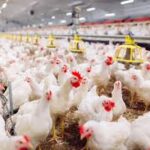PLANTAIN FARMING
Plantains come from the tropics, where they can grow almost year-round and flower and fruit at any time. In these conditions, they can bear fruit in as little as nine to twelve months after planting. Plantain farming is simply the cultivation of plantain. It involves the process of growing plantains and is one of the simplest and rewarding ventures to start in Nigeria.
Plantains are a type of banana that is widely grown in tropical regions around the world. They are a staple crop in many countries, such as Nigeria, Ghana, and the Dominican Republic. Plantain farming is a labor-intensive process, and the plantains require a lot of care and attention. The plantains must be harvested at the right time, and they must be properly dried and stored to maintain their quality.

One of the main benefits of plantain farming is that it provides a source of income for small-scale farmers. Plantains are a high-value crop, and they can provide a stable income for farmers who may not have access to other sources of income. In addition, plantain farming can improve food security and nutrition in developing countries. Plantains are a rich source of nutrients, including potassium, vitamin A, and vitamin C, they can be used in a variety of dishes, from savory to sweet.
One of the main challenges of plantain farming is the risk of crop loss due to pests and diseases. Banana weevils and leaf spot diseases are some of the most common pests and diseases that affect plantains. These pests and diseases can cause major losses for farmers, and they can be difficult to control. In addition, climate change is a major challenge for plantain farmers, increased temperatures and unpredictable rainfall patterns can negatively impact the growth and productivity of plantains.
READ ON : IMPACTS OF FERTILIZERS ON FARM PRODUCE










